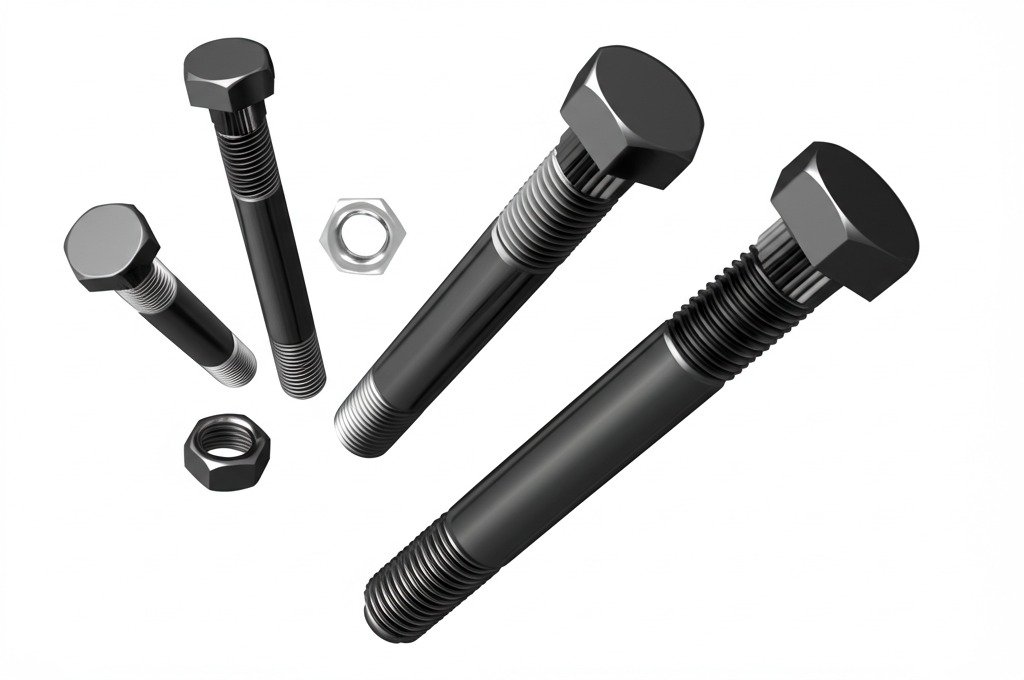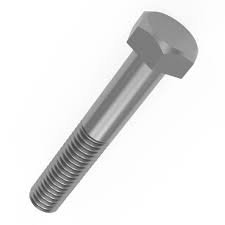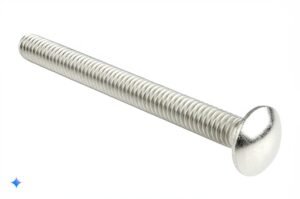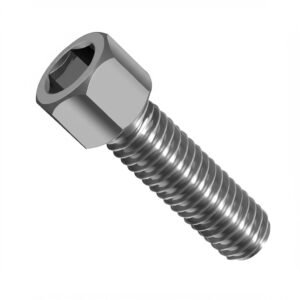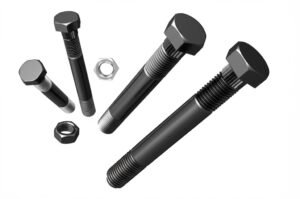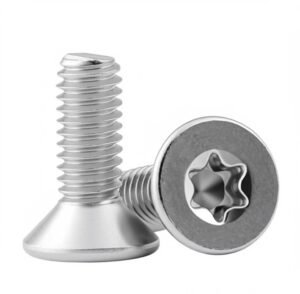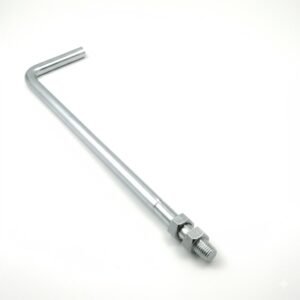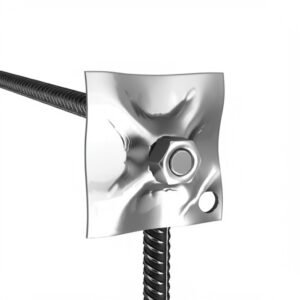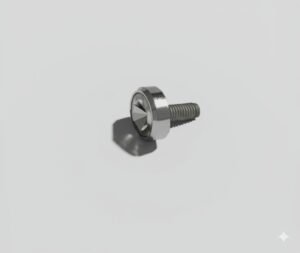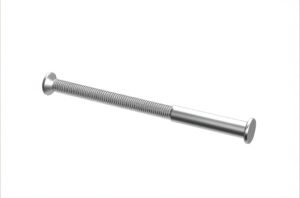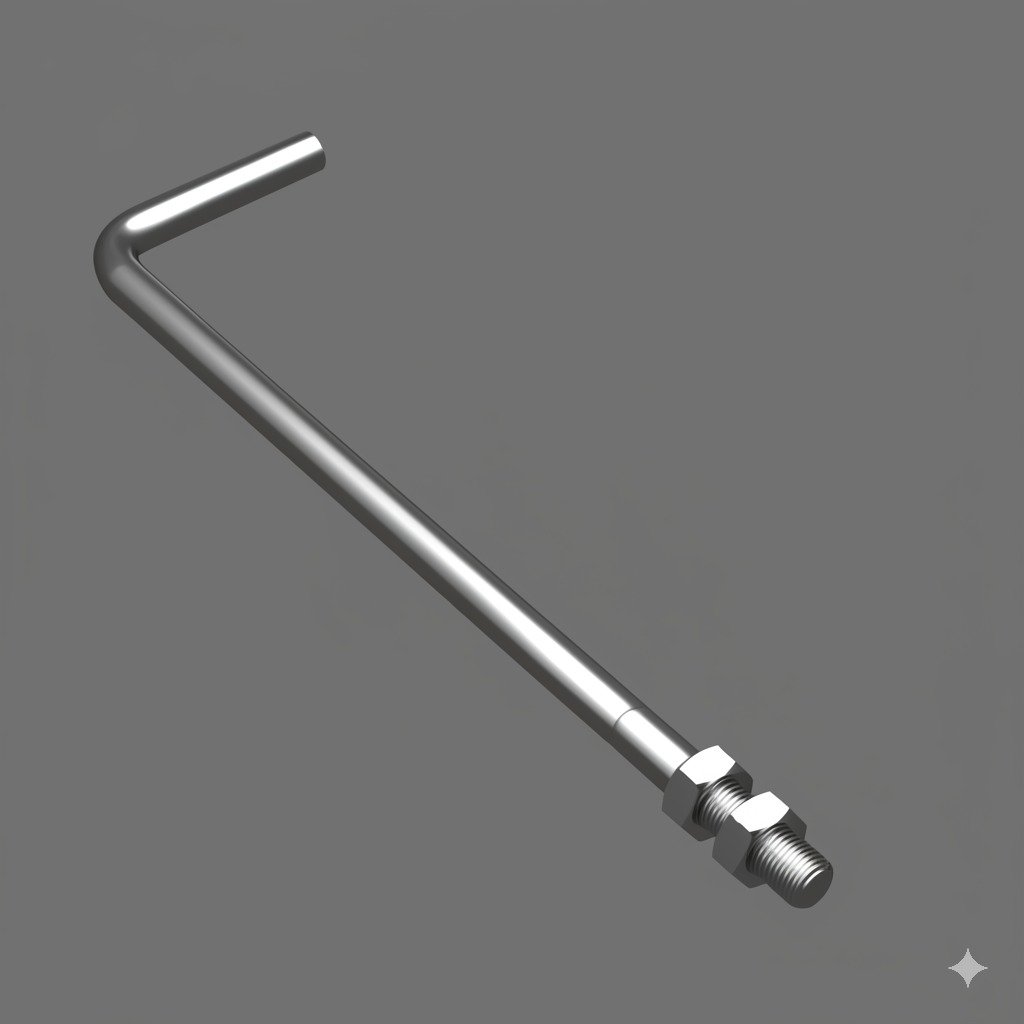By Nicolás Longo LinkedIn
(As an Amazon Associate we earn from qualifying purchases)
Bolts are fundamental fasteners that secure structural integrity in construction. This extensive guide delves into the essential role of bolts in foundation work and rock anchoring. The article offers technical insights, expert recommendations, and practical tips from diverse research sources. Whether you work on building foundations or rock stabilization projects, understanding the proper use of bolts boosts safety and performance. Bolts represent a critical investment in construction projects, ensuring long-lasting connections and reducing maintenance issues. With compelling data and innovative techniques, this guide empowers you with the knowledge to make informed decisions when selecting bolts for challenging construction environments.
Importance of Bolts in Construction Applications
Bolts are indispensable in construction for connecting and reinforcing components. In foundation work, bolts provide stability for heavy structures. Rock bolts and anchors secure tunnels, slopes, and retaining walls. These fasteners meet stringent requirements through certification standards like ASTM and ISO. Bolts also contribute to seismic resistance in earthquake-prone areas, reducing potential structural failures. Data shows that certified bolts can improve safety by up to 20% compared to non-standard fasteners.
- Enhanced Structural Integrity: Fasteners designed for foundation work guarantee robust assemblies.
- Long-Term Reliability: Quality bolts reduce repair needs and maintenance costs over time.
Incorporating these bolts into construction projects ensures dependable performance and minimizes downtime. For more in-depth technical details, resources such as ASTM International and Engineering Toolbox offer valuable information on bolt standards and specifications.
Foundation Bolts: The Cornerstone of Structural Stability
Foundation bolts are engineered to secure concrete and steel connections in buildings and infrastructure. They are typically embedded into concrete during pour and later tightened to secure structural elements. These bolts must withstand immense loads and environmental stresses.
- Load-Bearing Capabilities: Designed to support heavy loads in foundation systems.
- Durability and Resistance: Manufactured to resist corrosion and weathering in outdoor applications.
Researchers report that properly installed foundation bolts can improve the overall performance of structural foundations by as much as 15% (source: SAE International). Using foundation bolts that meet international standards leads to safer, more reliable constructions.
Rock Bolts and Anchors: Securing Challenging Terrains
In mining, tunneling, and slope stabilization, rock bolts and rock anchors are key to ensuring safety. These bolts are used to stabilize rock masses by transferring loads and preventing falls.
- Rock Bolts: Installed in drilled holes in the rock face to provide reinforcement.
- Rock Anchors: Often used in combination with grouting to secure loose rock.
- Safety Improvements: Enhance the stability of rock structures and reduce the risk of collapses.
Advanced materials and coating processes have increased the lifespan of rock bolts. Industry studies indicate that properly applied rock bolt systems reduce failure incidents in tunnels and slopes significantly (source: IEEE Xplore). Their usage ensures durable and stable geological structures, offering peace of mind to engineers and project managers.
Innovations in Bolt Design for Construction
Recent technological developments have led to significant improvements in bolt design. Manufacturers now employ computer-aided design (CAD) and robotic manufacturing to produce bolts with unmatched precision.
- Precision Manufacturing: Results in bolts with tighter tolerances and improved performance.
- Innovative Coatings: Enhance corrosion resistance and prolong bolt life.
- Smart Bolts: Emerging technology incorporates sensors for real-time integrity monitoring.
These innovations are transforming the construction industry. Research from ScienceDirect reveals that such advancements reduce manufacturing defects by nearly 20%. Enhanced bolt designs not only provide better performance but also improve installation efficiency, making them a superior choice for modern construction projects.
Comparative Analysis: Bolts in Foundations Versus Rock Anchors
A detailed comparison between foundation bolts and rock bolts reveals distinct benefits:
- Foundation Bolts:
- Purpose: Secure metal and concrete interfaces.
- Usage: Predominantly in building construction and heavy civil engineering.
- Performance: High load resistance and minimal maintenance.
- Rock Bolts and Anchors:
- Purpose: Stabilize geological structures in unstable terrains.
- Usage: Critical in mining operations, tunnel construction, and slope stabilization.
- Performance: Enhanced safety features through load transfer and anchoring.
This comparative analysis emphasizes the importance of selecting the right type of bolts for specific environmental challenges. Both categories of bolts serve crucial roles in construction, and their proper application ensures enhanced safety and longevity. For further insights, consult technical journals available via Engineering Toolbox.
Practical Tips for Selecting the Right Bolts
Choosing the right bolts for your construction project requires careful consideration. Use these expert-backed tips to ensure a sound decision:
- Assess Environmental Conditions:
Consider exposure to weather, corrosive elements, and variable loads. - Verify Certification:
Confirm that the bolts meet ASTM, ISO, or DIN standards. - Request Technical Data:
Review load capacity, material specifications, and corrosion resistance details. - Engage with Reputable Suppliers:
Reliable suppliers offer support and detailed documentation for their products. - Plan for Maintenance:
Choose bolts that facilitate easier inspection and replacement over time.
These strategies ensure your construction projects are built to last, with bolts that provide exceptional support and durability. Making an informed purchase decision reduces future maintenance issues and enhances overall project integrity.
Expert Recommendations on Bolting Systems
Industry experts consistently recommend:
- Using Certified Bolts:
Ensure compliance with global standards for improved safety. - Incorporating Advanced Coatings:
Utilize bolts with specialized coatings to combat corrosion in harsh environments. - Exploring New Technologies:
Consider smart bolting systems that monitor structural health in real-time. - Optimizing Installation Practices:
Adopt proper torque techniques and periodic maintenance checks.
Expert opinions from sources like ASME support these recommendations. Following expert advice not only enhances the safety of construction projects but also maximizes the performance benefits of high-quality bolts.
Data Insights and Research Findings
Recent studies highlight key data points about bolt performance in construction:
- Certified bolts reduce the risk of structural failure by up to 20%.
- Projects using rock bolt systems report a 25% improvement in long-term stability.
- Advanced foundation bolts contribute to a 15% increase in load-bearing efficiency.
These statistics, derived from industry research available on IEEE Xplore and ScienceDirect, underscore the tangible benefits of investing in superior bolt solutions. Leveraging these data insights makes it easier to justify the choice of certified bolts, ensuring projects not only meet safety standards but also deliver cost-effective results.
Sustainable Construction and Bolts
Sustainable construction practices increasingly rely on high-quality bolts. Green building initiatives demand fasteners that offer longevity and recyclability.
- Eco-Friendly Coatings:
Minimize environmental impact by using zinc or specialized eco-coatings. - Longer Lifespan:
High-grade bolts reduce the frequency of replacements.
Sustainable engineering choices contribute to reduced waste and lower overall environmental footprints. Choosing bolts that support sustainable practices is a smart investment for future-proofing your construction projects.
Future Trends in Bolt Applications
The bolt industry is evolving with trends that focus on smarter, more integrated solutions. Innovations to watch include:
- Smart Bolts with Embedded Sensors:
Allow real-time monitoring for maintenance and safety. - Enhanced Material Technologies:
New alloy compositions offer improved strength and reduced weight. - Digital Supply Chain Integration:
Streamlines procurement and quality control processes.
These trends pave the way for next-generation bolts designed for the complex demands of modern construction. Staying abreast of these developments provides a competitive edge in selecting and applying the most effective bolting solutions.
An Integrated Approach to Bolting in Construction
The use of bolts in both foundational work and rock stabilization is integral to modern construction practices. Combining industry best practices with innovative technologies ensures that each project benefits from enhanced safety, efficiency, and sustainability. From precision-engineered foundation bolts to advanced rock anchors, these fasteners support the structural framework of almost every construction project. Bolts play a pivotal role in maintaining the balance between robust building design and cost-effective maintenance. Adopting an integrated approach to bolt selection supports long-term success in diverse construction environments.
Building Resilient Structures with High-Quality Bolts
High-quality bolts are a cornerstone of resilient construction. Their ability to bear heavy loads and resist environmental degradation minimizes the risk of structural failures. Each bolt used in a project represents an investment in safety and performance. By sourcing certified bolts from reputable suppliers and adhering to established standards, engineers secure building components that stand the test of time. This commitment to quality bolsters the overall integrity of construction projects, ensuring that structures remain safe, durable, and efficient. Embrace advanced bolting solutions and innovative manufacturing techniques to unlock the full potential of your construction endeavors.
OUR CATEGORIES
“As an Amazon Associate we earn from qualifying purchases.”
